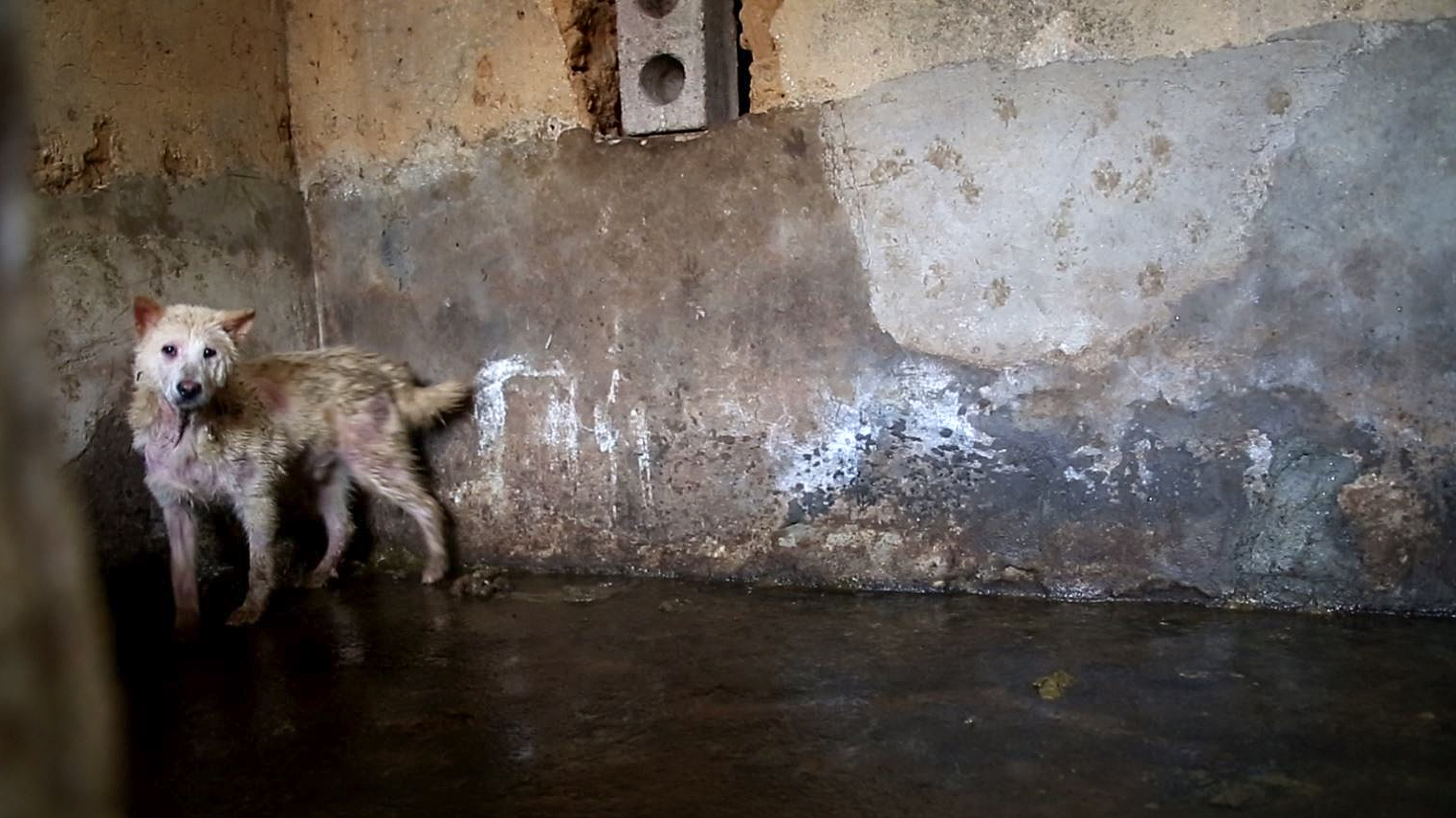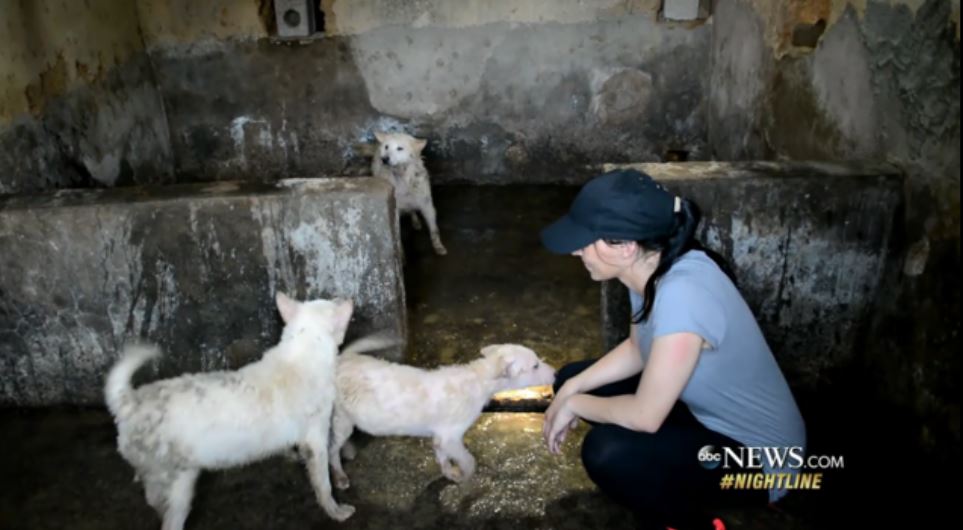
[On Tuesday night (Sept. 20, 2016) the Berkeley City Council passed a resolution in solidarity with Chinese activists condemning the killing of dogs for food in China, and asking China to end the dog meat trade there. I thought this would be a good time to publish my recent article about activists who went to China earlier this year and rescued three dog meat dogs. This article originally appeared at The Daily Pitchfork.]
By Michael Goldberg
There was no sink, no bed, no toilet. The walls of the Chinese jail cell, in which US animal rights activist Wayne Hsiung found himself, were painted a bright blue. The lights were never turned off.
“I thought I could be held indefinitely, particularly when they claimed we were spies from the US government,” Hsiung said during an interview.
In early May of this year, six Chinese interrogators took turns going at him for 15 hours. He couldn’t eat. He couldn’t sleep. Hsiung, co-founder of the international animal rights network Direct Action Everywhere (DxE), faced questions about why he had planted hidden cameras at a slaughterhouse in Yulin, China, now infamous for its annual Yulin Dog Meat Festival.
Meanwhile, his activist colleague, Julianne Perry, an MBA student at Dartmouth, faced her own interrogation in the same jail.
“I thought of the suffragettes jailed dozens of times, freedom riders sending dozens of students to be jailed,” Perry said. “I took comfort that I would be in good company if I was kept in jail for speaking out against social injustice.”
Hsiung, a lawyer who had taught at Northwestern School of Law, was worried about what would happen not only to Perry, but the third member of his investigatory team, Chris Van Breen, a deeply compassionate activist from San Jose whose day job is working as a plumber and who was waiting for Hsiung and Perry at their rented apartment in downtown Yulin. Just as pressing on Hsiung’s mind was the fate of the three dogs they’d rescued a week earlier from a Yulin dog meat farm.
“My main concern was the safety of the dogs,” Hsiung said.
A week earlier, on April 25, 2016, Hsiung and the other two DxE members had arrived in China to investigate the dog meat trade.
“It was partly redemption,” Hsiung said, explaining one of his reasons for the investigation. “I remember seeing dogs suffering [in China] when I was 9 years old. I wanted to save some because I couldn’t when I was a child.”

The dog meat farm turned out to be a former pig farm. For Hsiung, it was ironic because DxE had recently investigated one of Hormel’s Farmer John farms and documented the horrific conditions.
The owner told Hsiung he had to switch to dogs after he was essentially driven out of the pork business by huge multi-national companies like Smithfield and Hormel. But the owner also told Hsuing that whether he raised pigs or dogs made no difference, to him they were all the same. As Hsiung later said, this was one thing they could both agree on.
While Hsuing said that farms in the US are much worse that the dog meat farm he saw; but it was still a hellhole of a place: filthy and dilapidated with piles of old wood and other garbage scattered about and a rusty gate leading inside, where Hsiung’s found seven dogs confined in cement-walled pens.
Hsiung returned to the farm with Perry and Van Breen the next day to rescue three dogs, who are brothers and who they later named Pao, Lao and Xiao. “This was death row,” Van Breen said. “Every animal there was born to be murdered.”
The three dogs were covered with fleas and ticks, their skin was red, they were losing their fur and their bellies were distended. The DxE team took the dogs to a vet where they were de-fleaed and de-ticked. With Van Breen and Perry caring for the dogs at the apartment, Hsiung began part two of the investigation at a slaughterhouse in Yulin.
Read the rest of this story at the Huffington Post.
– A Days of the Crazy-Wild blog post –